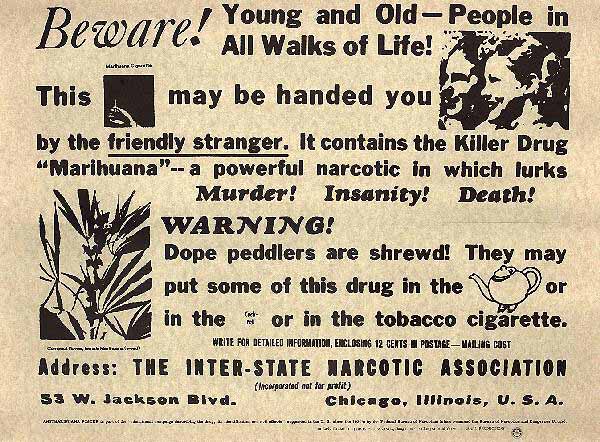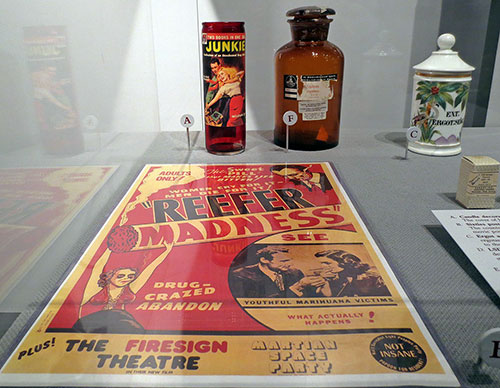The Cannabis Renaissance
Since the beginning of the 21st century, the war on drugs has weakened, given the evident failure of this public policy. With this, the relationship between humans and Cannabis began to return to normal, with the plant being cultivated on an increasingly larger scale for various uses. Industrial and medicinal use are already regulated in most of the world, and even psychoactive use is being regulated in many countries. The Humanitas360 Institute has been developing intense advocacy work to achieve the same in Brazil.
Advertisement distributed by the US Federal Bureau of Narcotics in 1935
In the 1990s, we saw an intensification of the war on drugs, and the siege closed in on Cannabis. Not only did we set records for seizures and incarcerations for marijuana, it also became very difficult to make legitimate uses of the plant — scientific, medical, industrial — due to exaggerated legal barriers. By the end of the 20th century, it became clear that these policies were costly and counterproductive, and new public policies began to emerge all over the world to replace the war on drugs.
What has been seen since the beginning of the 21st century is an evident renaissance of all uses of cannabis. Hemp industrial production in the world has been doubling every few years, at the same time that scientific research expands the possibilities of Cannabis medicine, while psychoactive use is regulated in countries such as Uruguay, Canada, Germany, and most American states. There are already 40 countries in the world producing Hemp, and this number is expected to grow a lot in the next decade.
In Brazil, the federal government recently published an ordinance creating a working group with the objective of promoting the commercial exploitation of Hemp in the country. Created within the scope of the Council for Economic, Social and Sustainable Development, the "Conselhão" of the Presidency of the Republic, the working group will be coordinated by lawyer Patrícia Villela Marino, president of the Humanitas360 Institute and member of the council.
The Drug Enforcement Administration Museum and Visitors Center is a DEA-owned museum located in Arlington County, Virginia. Its first exhibition, with displays of Cannabis, coca, and poppy, was inaugurated in 1999.

